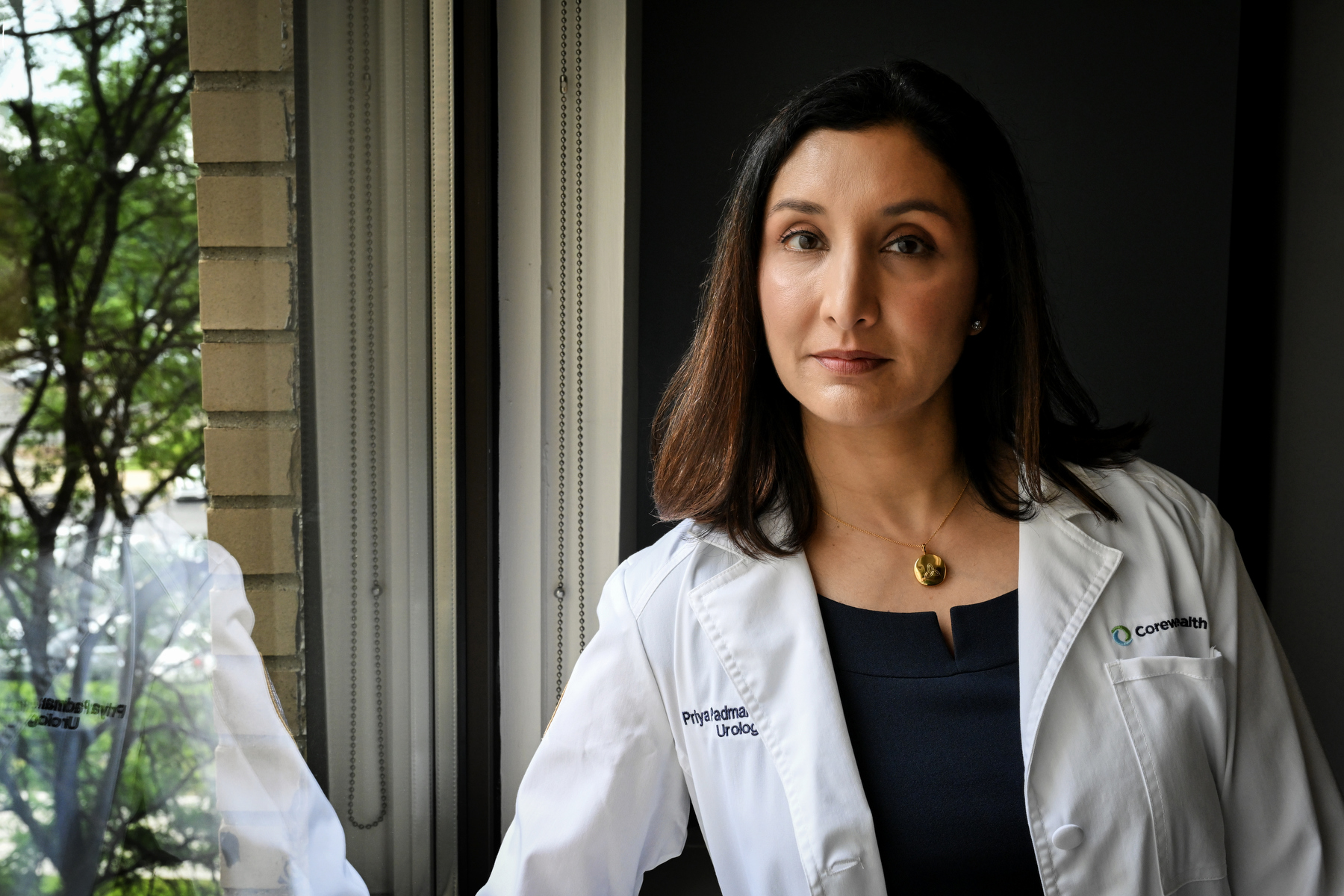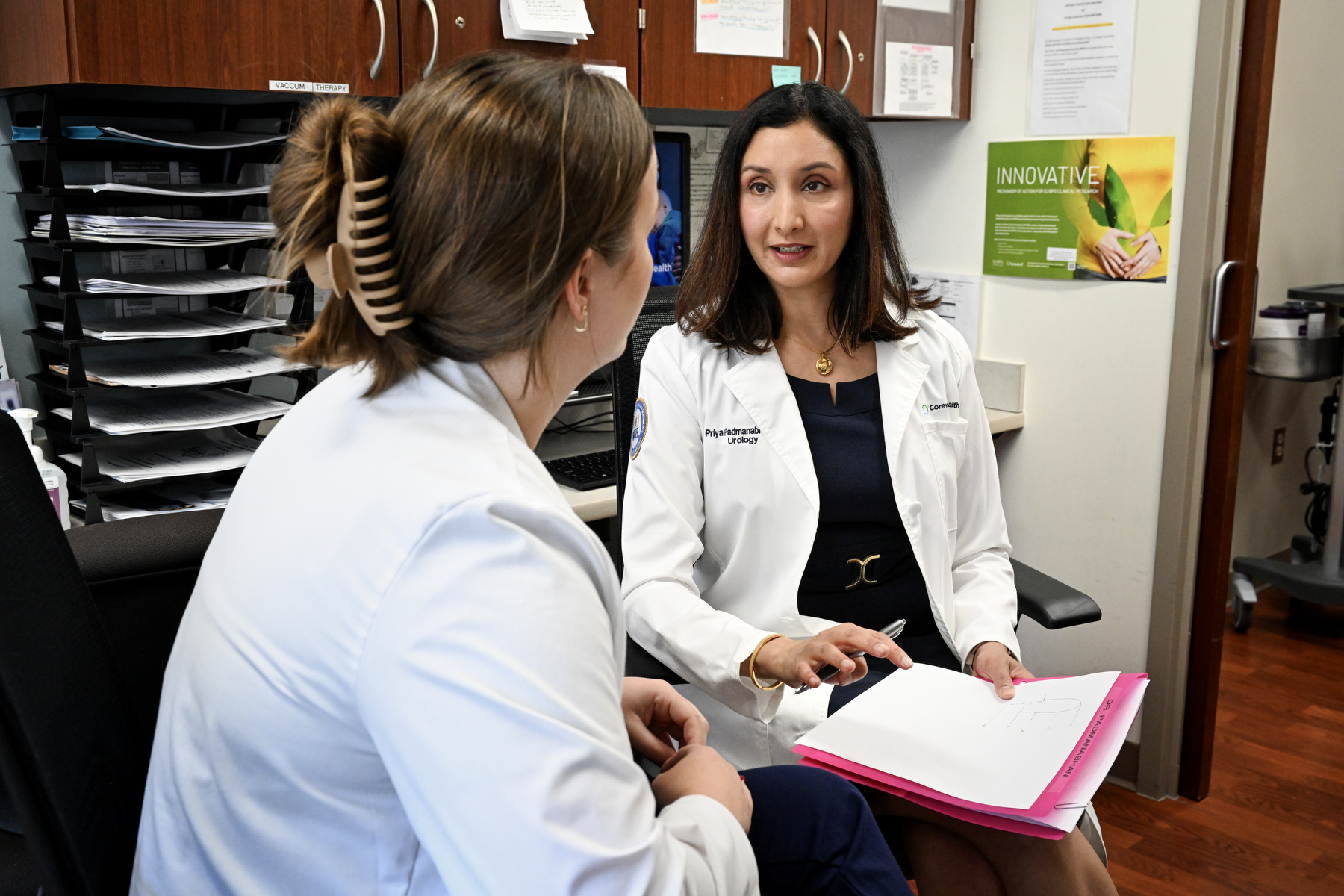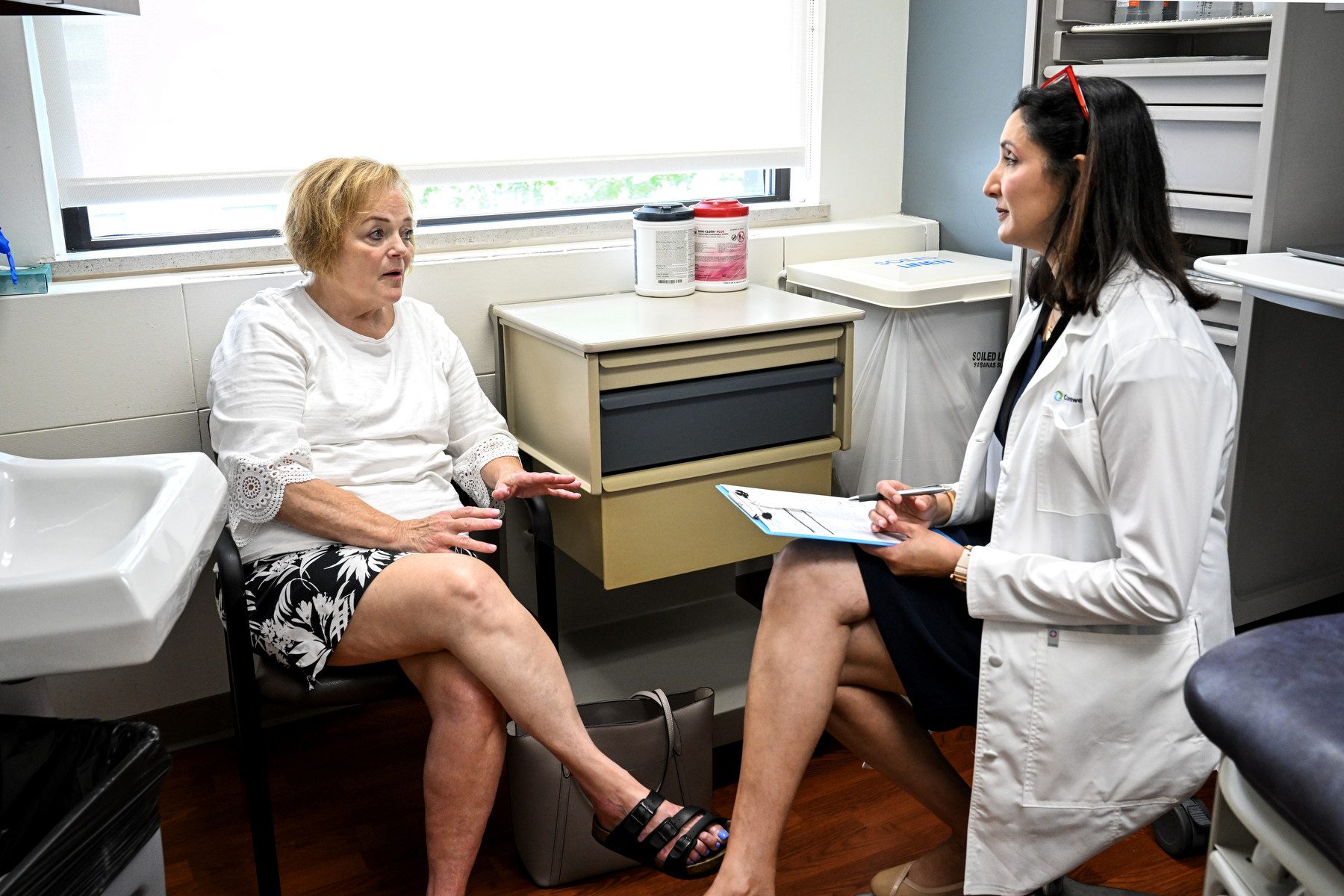Dr. Priya Padmanabhan: 'Growing older doesn’t mean you have to give up'

Experiencing incontinence might feel embarrassing, but Priya Padmanabhan, M.D., wants people to know it often is a normal part of aging.
Dr. Padmanabhan is an Oakland University William Beaumont School of Medicine urology professor and Urogynecology and Reconstructive Pelvic Surgery Fellowship director. So, she knows what she’s talking about.
She said urinary symptoms, such as frequency, urgency and incontinence, are commonly experienced by women all over the world. Today there are many ways to alleviate these symptoms and live a quality life with a “happy bladder.”
Seeing someone like Dr. Padmanabhan, who specializes in female urology, can help women get the specialized care they need.

“Becoming older doesn’t mean you give up everything that matters to you,” she said. “You should be able to live your life to its fullest.”
Dr. Padmanabhan practices at Corewell Health William Beaumont University Hospital’s urology clinic in the medical office building and at the Women’s Urology Center in the south tower of the Royal Oak campus. She earned her undergraduate degree from one of the seven sisters colleges — Bryn Mawr College, a fact she is rightfully very proud of — a public health master’s degree from the University of Michigan School of Public Health, medical degree from New York University School of Medicine and fellowship training at Vanderbilt University.
Before joining Corewell Health, she was at the University of Kansas Department of Urology for 10 years. She left her role as division director to move back to her home state of Michigan.
“I wanted opportunities to perform prospective research in a department with robust reconstructive experience and treat a more diverse population to really advance their quality of life,” she said.
Quality of life improvement is one of Dr. Padmanabhan’s passions and part of what drew her to this specialty within urology.
“As a field, urology is so important because it affects people in all decades of their life,” she said. “That ranges from a newborn all the way to the person near the end of their life.”

She manages female and male incontinence, reconstruction including urinary dysfunction (incontinence, retention), prolapse, fistulas, mesh complications and neurogenic bladder. Patients don’t always feel comfortable sharing their symptoms — especially when it comes to issues “below the belt,” she said.
She takes extra time with her patients to help them be comfortable and create a nonjudgmental space to share.
“I think that's what people need, they need to know that it's OK. It’s OK to talk about their symptoms without any embarrassment,” she said.
As our population ages, urinary dysfunction will become an even more critical issue impacting both people’s well-being and economic costs, Dr. Padmanabhan said.
The costs of incontinence treatments and anti-incontinence protection, loss of work, and personal events adds up to millions of dollars. There are significant costs also associated with people falling while rushing to the restroom and for recurrent UTI treatment. These lead to further complications and hospitalization and potential need for future long-term care.
“It isn't as though it's a rare disease that we have no cure for. It's a common problem that we have successful and accessible solutions for,” she said.

More about Dr. Padmanabhan
Dr. Padmanabhan has published numerous peer-reviewed articles, book chapters and given multiple presentations at both national and international meetings regarding female voiding dysfunction and reconstruction.
A few organizations she’s involved with include: